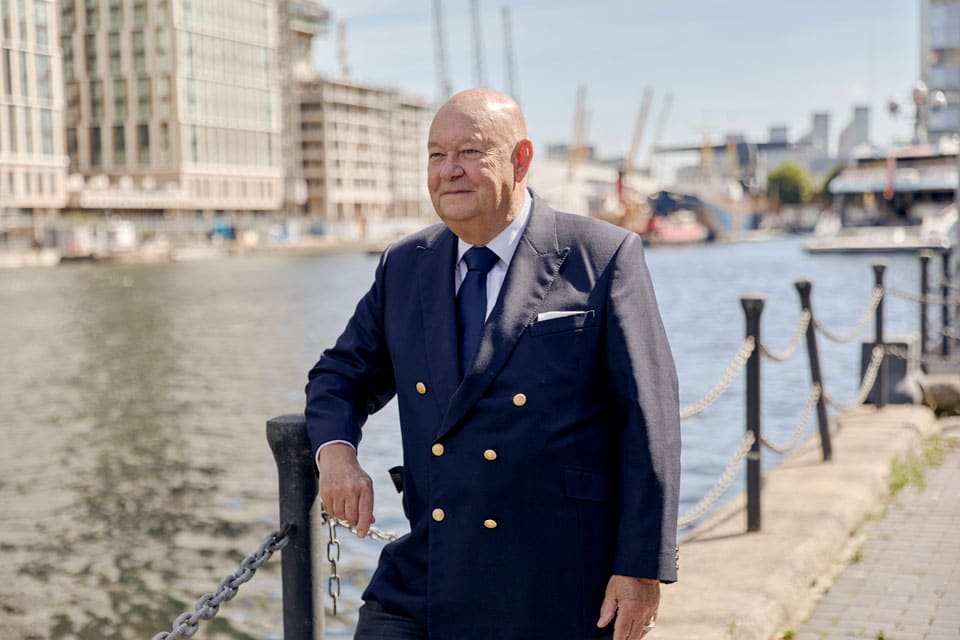The Importance of Creating a Legacy in Business

If your CEO doesn’t want to train their successor, you’ve got the wrong CEO.
Anything can happen to us. We could be sick, injured, fired, or just decide one day we’d rather be captain of a canal boat than a captain of industry. If the next person at the helm has any hope of hitting the ground running, there must be a plan in place long before they arrive.
This is succession planning, and disaster planning rolled into one. Who’s the deputy CEO? Who’s the assistant CEO? Maybe you work together for five years, and then when you step down, your deputy steps up, and the assistant becomes your deputy. You can follow this blueprint right across the company. Imagine if the MD, the FD, and even your line managers were thinking about who’s next in their position. What could you achieve with this kind of culture?
City Cruises needed 500 people to run, but we employed closer to 512. That way, when someone was sick or resigned or just didn’t show up, we had homegrown people who cared about the business, ready to take on the challenge. This took the pressure off the departments that had lost their team member and meant they didn’t have to work extra hours on tasks outside their job descriptions (often for months at a time). It meant we weren’t making bad decisions in the hiring process because we were desperate to fill in the gaps. In the long run, I’m sure it saved us time and money in recruitment, staff retention, client satisfaction and productivity.
When Hornblower purchased City Cruises in 2019, these kinds of processes are what enabled me to retire. We’d built something self-sufficient, where the founder no longer needed to be there for it to flourish.
In our board meetings, I would look around the table at the faces of motivated professionals who were all smarter than me. They were all experts in their fields. In a way, it doesn’t matter what we paid to get them there; the cheapest thing to hire is brains.
You don’t want to be the CEO who thinks they know it all and that everyone else in the room is there to serve your ego. That’s the CEO who joins a billion-pound company with 10,000 staff and leaves an 800,000 million pound company and 10,500 staff. Your legacy is to depart with both numbers going in the wrong direction.
But what if you employed brains, worked with a deputy, and trained them to be better than you are? What if you leant into their strengths? Maybe they’re more up-to-date on the modern lingo, AI tools and cultural shifts. You study the graphs together and share each other’s knowledge.
When I was a boy, milk and coal were delivered by horse-drawn carriage. And everyone on our street had their chimneys swept because we all burnt coal. It sounds like something from a Dickens novel, when really it was Rochdale Road, East London, circa 1950. When that’s the world you come from, you need people who can bridge the gap.
If you give a seven-year-old a tablet, they’ll instinctively swipe and start interacting with it. If you give a 70-year-old a tablet, they’ll probably try and swallow it with a mouthful of water.
We need balance in the boardroom. Not a glass ceiling halting anyone who doesn’t look or behave just like us. This is how we create something that outlives us.
Your legacy is so much more than the balance sheet you leave behind. The company’s future success is your legacy! It’s the infrastructure, the processes, the training, the culture, and the plan for the next decade.
If you run a football club with a winning record, what happens when the manager resigns or you sack them? Maybe the club don’t win a trophy for the next five years. Who’s fault’s that? It’s no good blaming it on the new coach. You hired them. Where was the succession planning? Why didn’t you know exactly who was next and embed them in the club sooner? You can be the most successful owner in the club’s history, but if you leave it in a shambles, that’s what people will remember.
We need to come to terms with our limits. When is it time to step down and let someone else have a crack at running the show? It’s more than just our ability in question. It’s time, knowledge, interest, health, and even geography.
I knew I couldn’t take City Cruises to the next level. I didn’t have the years left to take on debt or the energy to expand again. But even if I did, the environment of a business often dictates how far it can grow. The Thames has restrictions on the size of vessels it allows. So, it would take a company like Hornblower, with its international reach and infrastructure, to make a significant impact. It was sad to admit, but sometimes, it’s not the size of your boats; it’s the size of your oceans that makes the difference.
My advice is if you’re having this feeling now, then get out! Don’t let the business implode because of indecision. Save the company and keep your legacy intact.
If this isn’t you, and you’re only just getting started, now’s the time to plan for what happens after you depart (the business or the world). Think about how you can tread a path for others to follow and how to keep your footprints visible long after your shoes are filled by somebody else.
—————-
Written by Gary Beckwith.
Have you read?
The World’s Best Medical Schools.
The World’s Best Universities.
The World’s Best International High Schools.
The World’s Best Business Schools.
The World’s Best Fashion Schools.
The World’s Best Hospitality And Hotel Management Schools.
Bring the best of the CEOWORLD magazine's global journalism to audiences in the United States and around the world. - Add CEOWORLD magazine to your Google News feed.
Follow CEOWORLD magazine headlines on: Google News, LinkedIn, Twitter, and Facebook.
Copyright 2025 The CEOWORLD magazine. All rights reserved. This material (and any extract from it) must not be copied, redistributed or placed on any website, without CEOWORLD magazine' prior written consent. For media queries, please contact: info@ceoworld.biz








